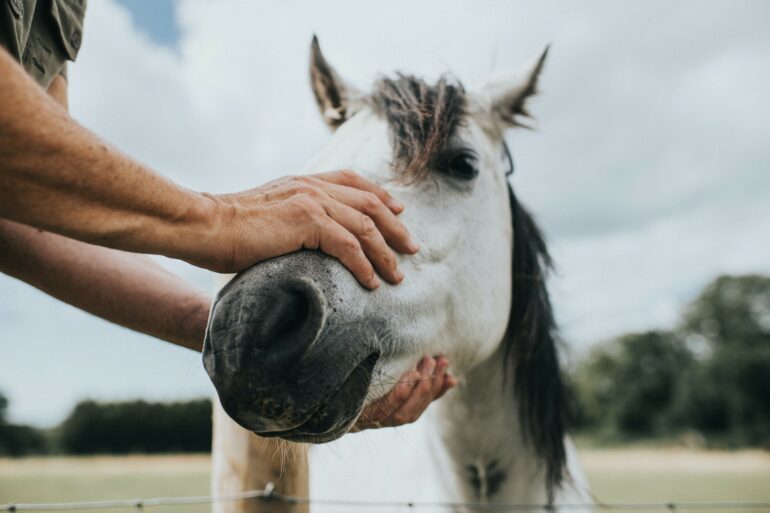As a veterinary science researcher, equine surgeon and sports medicine and rehabilitation specialist, I’ve seen firsthand the similarities between horses and humans.
Both horses and people with endocrine disorders like Type 2 diabetes can suffer multiple types of musculoskeletal disorders. For example, horses with pituitary pars intermedia dysfunction – similar to Cushing’s disease in people – suffer from tendon and ligament degeneration. Horses can also experience muscle loss, which can cause joint instability. That, and the chronic low-grade inflammation associated with endocrine disorders, can contribute to osteoarthritis.
There’s a principle in medicine called One Health, which says that animals, humans and the environment are inextricably connected – for one to be healthy, all must be healthy. It also means that we can learn a lot about our own health by studying the health of animals, and vice versa, including the many parallels in endocrine disorders between humans and horses.
Human and horse endocrine systems
Your endocrine system produces hormones that support many of your body’s basic functions, including growth and development, metabolism, sleep and more. Your hormones also play a role in the health of your bones, tendons and ligaments. Some endocrine disorders change how your body produces and releases hormones and can lead to osteoporosis, arthritis, ligament injury and other orthopedic diseases.
Humans aren’t the only species affected by this dynamic – horses are, too. In fact, approximately 20% of horses and over 34% of people in the U.S. are affected by endocrine disorders such as metabolic syndrome. These disorders are often accompanied by obesity.

Like people, horses with endocrine disorders are also prone to orthopedic diseases.
Alberto BN Junior/Moment via Getty Images
For both species, the degree to which endocrine disorders are connected to obesity and its associated negative health effects is complex. As mammals, horses and people share similar anatomy and endocrine physiology, and researchers have noted their parallel genetic links between obesity and metabolic disease.
Like people, obese horses with endocrine disorders often develop low-grade inflammation. Inflammation is a normal response to injuries and sickness. But chronic, low-grade inflammation can have long-term negative effects on the body. For example, low-grade inflammation is associated with metabolic osteoarthritis in people, and my laboratory is studying this possible link in horses.
In people, childhood obesity, which is related to maternal obesity, is associated with a type of joint disease called osteochondrosis. Foals born from obese mares are also predisposed to this same type of joint disease.
Research to note
Because of the similarities between people and horses, research on diagnostics and treatments for metabolic conditions could provide health benefits to both…



